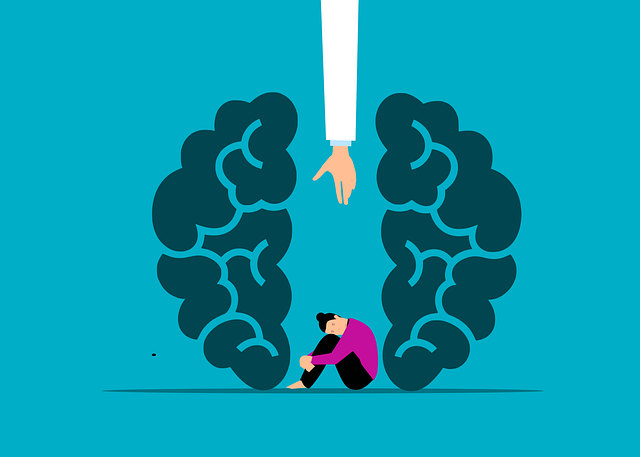Louisville Blended Families Therapy leverages positive thinking and mindfulness to foster harmony, reduce conflict, and strengthen bonds in blended families. Through identifying and reframing negative thoughts, cultivating emotional intelligence, and personalizing sessions based on individual needs, therapy empowers families to navigate complex dynamics. Success is measured by consistent effort and micro-wins, with cultural sensitivity ensuring inclusive strategies that enhance resilience for all family members.
In the dynamic landscape of Louisville blended families therapy, fostering positive thinking can be a transformative force. This article explores how implementing structured positive thinking exercises can significantly impact family dynamics. We delve into understanding the science behind positive thinking and its profound effects on blended families. Learn effective strategies for identifying and challenging negative thought patterns during therapy sessions, and discover tailored techniques to design personalized positive thinking workouts for each family member. By measuring success and making adjustments, families can enhance their well-being and strengthen their bonds.
- Understanding Positive Thinking and Its Impact on Blended Families
- Identifying Negative Thought Patterns in Therapy Sessions
- Strategies for Incorporating Positive Thinking Exercises
- Designing Customized Workouts for Family Members
- Measuring Success and Adjusting the Positive Thinking Routine
Understanding Positive Thinking and Its Impact on Blended Families

Positive thinking is a powerful tool that can significantly impact blended families in Louisville, fostering a more harmonious and supportive environment. Understanding and adopting mind over matter principles can help parents and children navigate the complexities of blending households. By promoting positive affirmations and reframing negative thoughts, families can enhance communication, reduce conflict, and strengthen bonds. This exercise is particularly beneficial for children who may struggle with adjusting to new family dynamics, as it encourages resilience and a more optimistic outlook on life.
In the context of Louisville blended families therapy, incorporating social skills training alongside positive thinking practices can be transformative. Teaching children and parents effective communication strategies and emotional regulation techniques allows them to express their needs and emotions healthily. Combining this with the development of a self-care routine further supports mental well-being, ensuring that each family member feels valued and heard. These integrated approaches create a nurturing atmosphere, where positive thinking becomes a collective practice, ultimately strengthening the blended family unit.
Identifying Negative Thought Patterns in Therapy Sessions

In Louisville Blended Families Therapy sessions, identifying negative thought patterns is a crucial step towards fostering positive thinking. Therapists play a vital role in helping individuals recognize and challenge distorted or unhelpful thoughts that can negatively impact their emotional well-being. Through open dialogue, therapists encourage clients to explore and vocalize their thoughts, uncovering recurring themes that often reveal underlying issues. By understanding these thought patterns, therapists can guide clients towards healthier alternatives, promoting a more balanced perspective.
This process involves cultivating emotional intelligence, where individuals learn to recognize and manage their emotions effectively. Mindfulness meditation techniques are also introduced as tools to enhance self-awareness and break free from negative thought cycles. Additionally, cultural sensitivity in mental healthcare practice is integral, ensuring that diverse perspectives and beliefs are considered when addressing thought patterns unique to each client’s background.
Strategies for Incorporating Positive Thinking Exercises

Incorporating positive thinking exercises into daily routines can be a game-changer, especially for those navigating complex life situations, like Louisville blended families therapy clients. Start by identifying specific moments throughout the day when negative thoughts tend to creep in—whether it’s upon waking, during stressful tasks, or before bedtime. Intentionally shift these mental patterns by practicing gratitude: take a few minutes each day to reflect on and appreciate the positives in your life, from simple pleasures to significant relationships. This can be as simple as writing down three good things that happened recently.
Additionally, mindfulness exercises focused on emotional regulation can aid in preventing burnout among healthcare providers—a demographic often at risk for high stress levels. Techniques like deep breathing, meditation, or even short walks in nature promote a sense of calm and help individuals separate from negative thoughts. Encouraging empathy-building strategies, such as active listening and perspective-taking, not only strengthens relationships but also cultivates a more positive mindset, fostering deeper connections within both personal and professional settings.
Designing Customized Workouts for Family Members

Designing customized workouts for family members is a powerful way to enhance emotional well-being promotion techniques within Louisville blended families therapy. Each family member has unique needs and experiences, so tailoring activities that resonate with individual preferences fosters deeper connections and strengthens relationships. For instance, while some may benefit from structured exercises like yoga or meditation, others might prefer creative outlets such as art or music therapies.
By incorporating empathy building strategies into these workouts, families can cultivate a supportive environment where everyone feels heard and valued. Mind over matter principles, such as positive affirmations and gratitude practices, empower family members to overcome challenges and build resilience together. This holistic approach not only strengthens the familial bond but also equips each individual with valuable tools for navigating life’s ups and downs.
Measuring Success and Adjusting the Positive Thinking Routine

Measuring success is a vital part of any positive thinking routine, especially for families navigating complex dynamics like those in Louisville blended families therapy settings. It’s important to note that progress isn’t always linear; what matters is consistent effort and adaptation. Therapists play a crucial role here by helping clients set achievable goals aligned with their emotional regulation and resilience-building journeys. Regular check-ins allow for tracking these micro-wins, identifying areas of improvement, and making necessary adjustments. This dynamic process ensures the positive thinking exercise remains relevant and effective, catering to the unique needs of each individual and family.
In light of the above, cultural sensitivity in mental healthcare practice is an integral aspect of successful implementation. Understanding and incorporating cultural nuances can make positive thinking routines more accessible and impactful. Therapists should encourage clients to share their perspectives, fostering a safe space for open dialogue. This inclusive approach not only strengthens the therapeutic bond but also ensures that emotional well-being strategies are culturally responsive, enhancing overall resilience building within Louisville blended families.
Implementing positive thinking exercises in Louisville blended families therapy can significantly enhance coping mechanisms and overall well-being. By identifying and challenging negative thought patterns, family members can cultivate a more optimistic outlook, fostering stronger connections and improved communication. Customized workouts tailored to individual needs, combined with regular measurement and adjustments, ensure that these practices remain effective and relevant as the family dynamic evolves. Louisville blended families can benefit from these strategies, creating a supportive environment where positive thinking becomes a powerful tool for navigating life’s challenges together.














